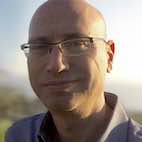Denial of the Jewish Holocaust
Until recently most people who used the term “The Holocaust” understood it to mean the extermination of six million Jews during the Second World War. Is this still the case? Most honest people use it that way, but there is a new trend that antisemites and Holocaust-deniers use, which is to use the term to refer to any people who may be oppressed or to any other genocide. This is misleading, as the Holocaust is and should only be used when referring to the Jewish Holocaust, that is, the persecution and extermination of 6 million Jews during WWII.
Why does this matter?
Using the right terminology is important because otherwise language becomes so diluted that it loses its meaning. If we start calling anything with a term used to name something else, then eventually the term will mean neither the original nor the new thing.
“Holocaust denial is a scourge that intends to show that the Holocaust had nothing to do with Jews and Judaism.”
But this is not just a matter of semantics. The appropriation of the term Holocaust to refer to any genocide or persecution is motivated by malicious intent, in which antisemites are attempting to minimize or even deny that the Jewish Holocaust ever happened, as a new affront to the Jewish people. In their minds, by denying that the people of the Holocaust were Jews they hope to show that there was nothing really unique about the Holocaust, and indeed given that there were other genocides after it they hope to show that the Holocaust was really not so bad after all.
Educated people of good will should fight this attempt. Holocaust denial is a scourge that intends to show that the Holocaust had nothing to do with Jews and Judaism, that if any Jews were murdered in that event at all it was considerably less than 6 million, and that because many millions of other people died during WWII, the people of the Holocaust were not the Jews and therefore the Holocaust is not a uniquely Jewish tragedy.
Want to stay informed about the topic?
Subscribe below.

